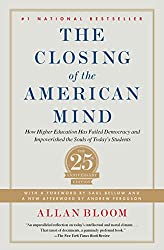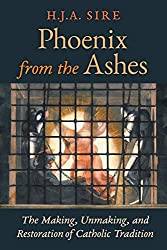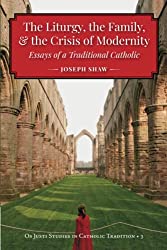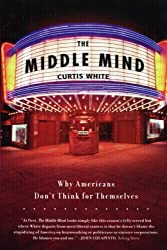
2011 Foreword to a Series From the Past
Today, I start serialising a long letter from 2005, written mainly for British friends from my New Age past. (I had once been a member of the Findhorn Community in Scotland – perhaps the leading New Age community in the world.)
If you read this series, please bear this in mind: it was mainly written for New Agers . And I had the attitude of “When in Rome, speak like the Romans do …” Thus, the language here differs considerably from my writing today.
Today, for example, I am ever more sobered by the reality of hell. But I do not mention that here. There is little point speaking about hell to New Agers. Instead, I try different tactics to explore and explain the differences between the Faith of the Church and the faith of the New Age.
Are there other reasons why this material is different?
Frankly: yes.
My transition from the New Age to Catholicism was tough. I spent years in inner warfare with different voices competing within myself. I had devoted nearly twenty years of my life to things New Age, because I saw fine things and fine people in that movement. It was far from easy to say “no” to all that.
Finally, I felt I had to confront the New Age, speak out—make a first hesitant attempt at apologetics. The material serialised here is that first tentative step. But reading it today, I see it is still too hesitant: not serious enough.
For example, I critique a book by a man who had been both real friend and mentor to me. As the years have passed, I have become ever more disturbed by the wide-ranging implications of his book (Soulution: The Holistic Manifesto by William Bloom). But it was and still is impossible for me to ignore what his genuine well-meaning intentions.
Still, there will be those who think I have not been strong enough with Bloom’s Soulution. Ironically, others will find my earlier writing more digestible. They will find it more open, tolerant, balanced, dialectical – less ‘hidebound, narrow-minded, intransigent’.
What can I say? I can only say that my present ‘hidebound, narrow-minded, intransigent’ self is not kneejerk.
A true fundamentalist is kneejerk; he has come to his conclusions with little reflexion.
In my case, I can at least say it took year upon year of suffering and struggle to become a ‘hidebound, narrow-minded, intransigent’ Catholic!
This old material may raise a few eyebrows here or there. Why republish something apparently so conciliatory and even admiring of the New Age in places – if it no longer represents how I feel now?
To this: I will say that only edited extracts of the original letter are being re-presented. I am deleting material that seems inappropriate now and supplementing it with extra writing that reveals why I think differently today. Here and there, I have also made some very small changes in wording. What remains however remains much as I wrote it in 2005 and I hope these thoughts from an earlier version of myself might prove useful for some folk.
Because it is necessary to at least try talking to New Agers.
The New Age movement spreads rapidly in the Anglosphere at least – and all this growth serves to obscure, nay BURY, Christianity.
New Age-ism completely obscured Christianity for me for 20 years. And I am hardly the only one who has suffered this tragedy.
Countless other people have no idea as to the Christian Mystery, due to the rise of New Age doctrines – most perniciously the doctrine that one does not need the Church, because everything one needs can already be found within the so-called “universal spirituality” of the New Age.
Yes Christians must attempt dialogue with the New Age movement. Hopefully, this material might be of some use in that dialogue. For convenience, we will list and link the six parts of this series:
- Talking to New Agers —Part 1: A Still-Hesitant Apologetics
- Talking to New Agers —Part 2: On Holistic Spirituality
- Talking to New Agers—Part 3: On Amputating Christianity
- Talking to New Agers—Part 4: A Catholic Convert from the New Age
- Talking to New Agers—Part 5: The Catholic Sacraments
- Talking to New Agers —Part 6: The Holistic Bubble
And now back to 2005, at least after the following short video from myself—Roger Buck
2005: First Apologetics to the New Age Movement
Dear Friends, near and far, known and unknown,

From Ireland, I greet you.
This letter is about my re-emergence into a more outward sphere of activity, after many years of retreat …
This letter [expresses my] concern for the world, and my growing and painful sense that the modern spirituality often called holistic or New Age, and to which I devoted much of my life – is failing the world, and even – with the noblest of intentions – unconsciously colluding with a secularist materialist capitalism …
Much is here as I write – including grief. Grief inasmuch as I have been concerned for the world, all my adult life. And all this time, I have known that the cure for world suffering lay in spirituality.
And for much of that time, I focussed on the spirituality of the holistic or New Age culture. Yet what I write today, concerns a loss of faith in that culture.
It involves pain, as I decisively say why I have lost faith – which also means faith in the ultimate hope of the sincere work of many noble friends still working for that culture with real love for the world …
What I intend to paint here is a very wide canvas. There are so many points of departure, so many places to take up my brush … But I have decided to start with three books I recently been reading or re-reading. Before continuing, let me briefly introduce them.
First up, we have The Closing of the American Mind by Allan Bloom – which almost equally could have been called The Closing of the Western Mind.
Bloom paints a bleak picture of the post 60’s decades.
His is a portrait of loss … loss of tradition, loss of culture, loss of sensitivity, loss of delicacy, loss of intelligence, loss of aspiration, particularly aspiration to truth … culminating in a dumbed-down, brutalised, desensitised charade of culture, which under the pretext of tolerance and open-ness becomes ever less pluralistic and free, but rather, ever more superficial, escapist, commercialised, bland and narrow.
I suppose there are many books with similar themes – many of them written by bitter minds and narrow fundamentalists, nostalgic for a past that never existed.
What sets Bloom’s book apart is no trace of bitterness, moroseness or narrowness. The New York Times called Bloom’s book ‘That rarest of documents, a genuinely profound book.’
I concur – completely. Bloom’s book is profound – because he is a profound thinker, a profound observer of the human soul over many decades and is very evidently, profoundly human himself.
Next up, we swing almost 180 degrees to the opposite, with another Bloom – namely William Bloom’s Soulution – The Holistic Manifesto. Reading this book is like going to a completely different planet from the first: one where the 1960’s ushered in not bleak destruction, but profound liberation and hope.
Now many of you will know far more of William Bloom than Allan Bloom. For those of you who do not, however, I will say that he has been widely seen as the leading figure of holistic culture in Britain, teaching and publishing over decades. He is also a man I have been privileged to know – and to be known and loved by. He is a man of colossal heart and integrity, who I observed over many years, working, working, working intensively for a more human world. His book, then, is also a monument to real humanness.
[2011 Remark: I need to make a distinction here between the man and the book. My belief in the sincerity of the man’s aspirations remains. As later installments will show, I was disturbed by the book in 2005 – though I now think not nearly disturbed enough.]
Finally we have Robert Sardello’s Love and the Soul … written by another very human soul, who has imbibed deeply from Carl Gustav Jung and Rudolf Steiner.
Allan Bloom and William Bloom

I will have more to say on Sardello, by and by. For now, I want to talk about the two Blooms – two flowers of humanity. We live in a world of partisanship and polemical taking of sides. I doubt very much that many who have read Allan Bloom’s classic, will bother with William’s and vice versa. I lament this. I would encourage all those with a faith in the New Age project to study Allan Bloom. Similarly, I would encourage traditionalists – particularly my Catholic traditionalist friends – to read William Bloom and feel how much heart and integrity and idealism he possesses, however much they disagree with him.
We have then two different worlds in Allan and William Bloom. In William Bloom we have tremendous optimism, one where the 60’s opened so many possibilities. In Allan Bloom, we have instead bleakness, where so many possibilities have died.
At the heart of much of what Allan Bloom is writing is an epistemological impasse. An epistemological impasse? I am aware that in the New Age culture to which I devoted years of my life, not much was said of epistemology, and some explanation may be in order.
In its simplest sense, epistemology concerns the questions of what we know and how do we know it. How do we know what we know?
Do we only know things observable by the senses or by calculable reason? For instance: “The cloudless sky is blue” and “2+2 = 4” … Can we only know things empirically and rationally? Or do we know things beyond reason and empiricism?
Is there TRUTH beyond the material world? If so, do we know about this truth in the Spirit, and if so, how do we know? And what happens to such truth in a modern secular world, if all we can agree on knowing is the lowest common denominator of our experience – the facts of the senses and mathematical reason?
As I will come to, I join with Allan Bloom, as well as thinkers as diverse as Rudolf Steiner and Bl. John Paul II, in feeling epistemology is the key to so, so much of the world horror. In our failure to realise much of anything beyond the lowest common denominator, the result is a secular world more and more devoted to efficiency, utilitarianism, functionalism, to what is seen to work and the so-called ‘bottom line’.
The result is soullessness – soulless architecture in monotonous, rigid shapes; soulless education in the form of rote learning for children; soulless universities focussed ever more on technological and business proficiency; soulless capitalism and the rise of more and more powerful corporations … and so much else besides.
Now as diverse as these thinkers are, they possess another common thread, inasmuch as, one way or another, they see that alongside the destruction of tradition, there was also a destruction of sensitivity and knowing.
This is to say that our society was once ‘carried’ by spiritual traditions. And in the loss of these traditions and the awareness that went with them, we face an all-dominant materialist epistemology.
Again, the only thing that matters – is matter.
Spiritual sensitivity becomes marginalised – something ever more doubtful, seen as purely subjective and relative. Material things are all that we can universally agree upon.
Spirituality becomes private-ised.
To be Continued …
To Navigate Through This Series
- Talking to New Agers —Part 1: A Still-Hesitant Apologetics
- Talking to New Agers —Part 2: On Holistic Spirituality
- Talking to New Agers—Part 3: On Amputating Christianity
- Talking to New Agers—Part 4: A Catholic Convert from the New Age
- Talking to New Agers—Part 5: The Catholic Sacraments
- Talking to New Agers —Part 6: The Holistic Bubble
My Two-Part EWTN Interview on My Conversion from the New Age
Foreword for Monarchy by Roger Buck
Buying Books at Amazon Through These Links Gives Us a Commission. This Supports Our Apostolate. Thank You if You Can Help Us Like This!









Comments
comments are currently closed
7 responses to “Talking to New Agers —Pt. 1: A Still-Hesitant Apologetics”
[…] More Church Ministry News Here: From 2005: Talking to the New Age (A Still Hesitant Apologetics) Destiny Image Films endeavors to tell inspirational stories that will touch and change lives. We […]
[…] I have been serialising a long letter (the first part is here) originally written to old New Age friends of mine back in […]
[…] series – which starts here – is subtitled “A Still-Hesitant Apologetics”, because in 2005 I was still a fairly […]
[…] As has been explained previously, this is a very personal series, which is drawn from a letter originally written in 2005 for old New Age friends of mine. The first part of this series on the New Age Movement can be found here. […]
[…] « Talking to the New Age Movement Part 1: A Stlll-Hesitant Apologetics Talking to the New Age Movement (A Still-Hesitant Apologetics) Part III: Steiner on Evil » […]
[…] the previous material (from 2005) on the New Age starting here, we have been contrasting William Bloom’s upbeat New Age approach with a very different […]
[…] far in this series on the New Age movement (first part here) we have been quoting material from 2005 – from a letter I wrote back then to old New Age […]